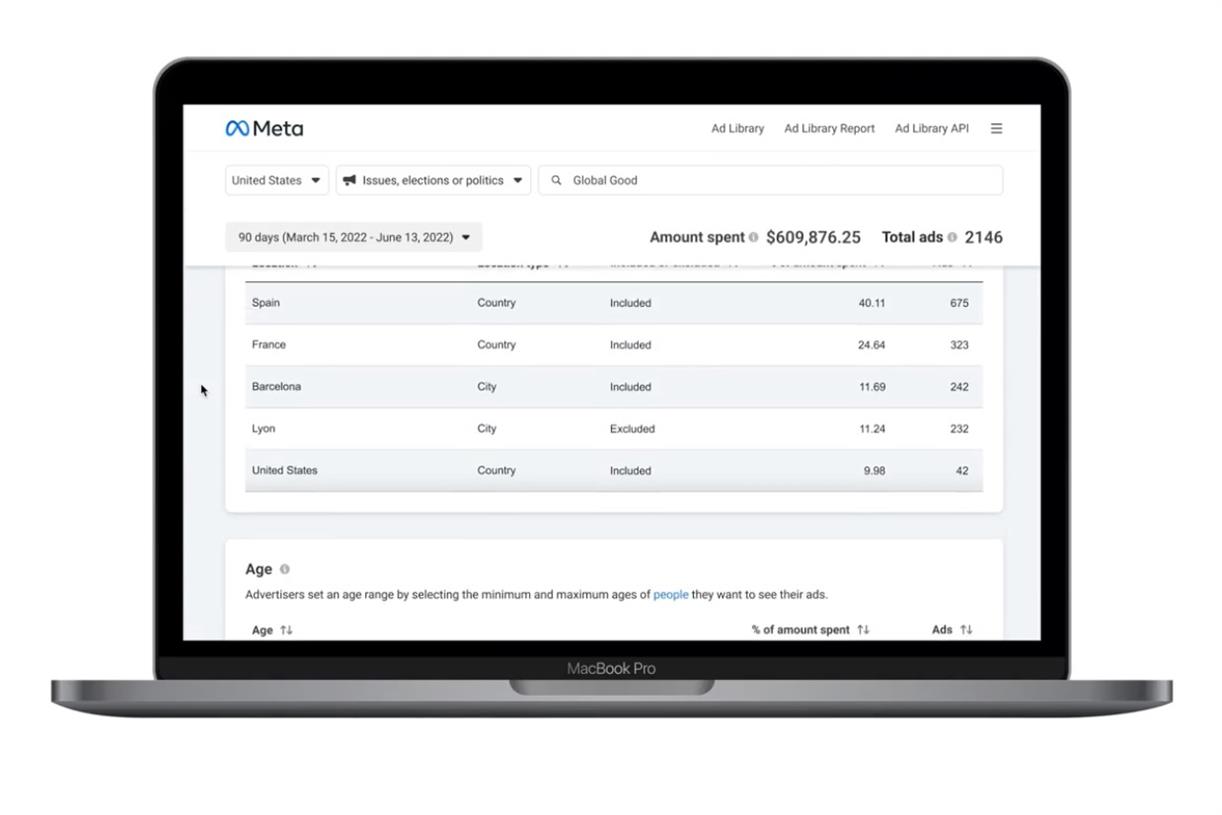Meta is updating its ad transparency tools to give vetted researchers and then the public access to detailed information about how advertisers target users with political and issues-based ads.
From the end of May, targeting information will be available on “social issue, electoral or political ads” to Meta-vetted academic researchers through the Facebook Open Research and Transparency (FORT) environment.
Data will be provided for individual ads, including interest categories selected by advertisers. The widening of the toolset is an expansion of a pilot launched by Meta last year that provided targeting information for political and issues advertising from the run up to the 2020 US presidential election. Data is now available for all social issue, electoral and political ads run globally since August 2020.
Meanwhile, from July, Meta’s publicly-available Ad Library will include a a summary of targeting information for political ads after they have launched. This will give open access to data on the total number of social issue, electoral and political ads run on a Facebook page and the specific targeting categories deployed, such as location, demographics and interests. In addition, the percentage of adspend used to target those categories will be reported.
Writing in a blogpost on Facebook, Meta vice-president of business integrity Jeff King said: “We’ll also include whether a page used custom audiences and/or lookalike audiences. For example, the Ad Library could show that over the last 30 days, a page ran 2,000 ads about social issues, elections or politics, and that 40% of their spend on these ads was targeted to ‘people who live in Pennsylvania’ or ‘people who are interested in politics’.”
King added: “By making advertiser targeting criteria available for analysis and reporting on ads run about social issues, elections and politics, we hope to help people better understand the practices used to reach potential voters on our technologies.
“We are committed to providing meaningful transparency, while also protecting people’s privacy. In updating our tools, we solicited advice from external experts in the academic community and civil society on how to best achieve both of these important objectives, and we will continue to do so as we continue to evolve these tools.”
Facebook, Google, Twitter and TikTok recently signed up to an Advertising Standards Authority-led pilot to help the watchdog enforce its rules around online ads.





















Discussion about this post